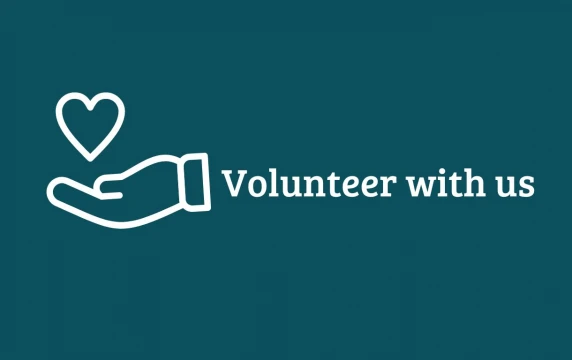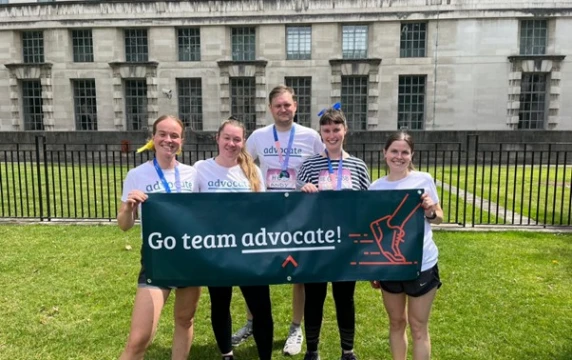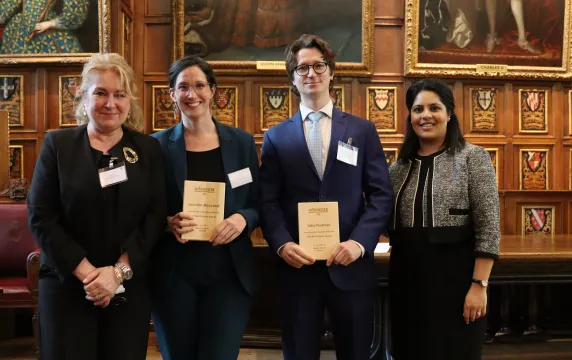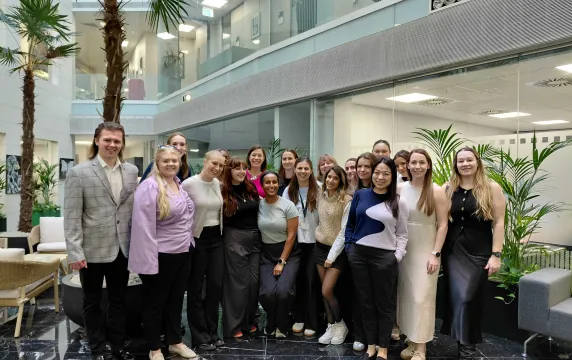Simon Milnes, 20 Essex Street
To celebrate Volunteers' Week, we spoke to some of our fantastic Pro Bono Ambassadors about what drives them to do pro bono work. These are the barristers who not only dedicate a generous amount of time and expertise to fighting access to justice but encourage others in their chambers to do the same. We couldn't do the work we do without our volunteers - the whole Advocate team is incredibly grateful for their support.
Our ambassadors take us through their experience of pro bono throughout their career, from their very first case to their most memorable, as well as lessons they have learned and advice for any lawyers out there who are sat on the pro bono fence. Read on to see what Simon Milnes has to say.

At what stage in your career did you take on your first pro bono case?
While studying for the Bar Vocational Course - through the Free Representation Unit.
Why did you decide to undertake pro bono work?
There really is a special sense of purpose that comes from being of service to people who couldn't otherwise afford a lawyer. I enjoy my commercial work, but mixing in some days of pro bono makes life bigger, warmer, funnier, and far less predictable. It also involves me in a broader range of work than my specialisms that I do for paying clients.
What was the most memorable case you worked on, and what did you do?
Representing a couple who had been ripped off to the tune of £25,000 in a scam by an estate agent, supposedly to buy properties in Portugal (in fact he just pocketed the money). I worked with the couple to gear up for a trial, helped them with witness statements, bundling and then settlement negotiations, drafting a consent order and subsequent enforcement steps. In the end, the couple got their money back plus costs and interest. But the scammer had apparently done to same to many other people too!
What effect did pro bono work have on your career?
My volunteer work been great for my ‘job satisfaction’ and sense of purpose which carries over into my commercial work. It’s also been an incredible privilege to meet some amazing pro bono clients, including indigenous people in remote areas. I do believe I’ve come back to my commercial work with a refreshed spirit and sense of perspective.
What is the most rewarding thing about doing pro bono work?
It's about knowing the difference that a lawyer can make, guiding clients towards options that protect them and steering them away from traps that can ruin life for unwary people, while respecting their autonomy. Also, you can visibly see pro bono clients relax and come down several levels of stress once they have a lawyer by their side to talk to.
What advice would you give to any barrister unsure about whether to start doing pro bono work?
- Look for opportunities close to your existing field, so that you feel on safe ground and can quickly earn clients' trust.
- If you do civil work, consider the Chancery Bar Litigant in Person Support Scheme in the Chancery applications court, as litigants in person really need and appreciate the help. Also, the commitment there is limited to a day at a time, so it's manageable.
- I've found it's harder to predict what will happen in pro bono cases, and getting on top of the facts will usually take more time than in paid work. So be ready for unexpected developments, and perhaps avoid scheduling a pro bono conference right before another appointment!
- Consider signing up with Advocates for International Development for international projects.
- Consider asking your chambers library to donate to the International Law Book Facility. It sends recent-ish editions to universities, judicial colleges, etc in the developing world, often making the difference between bare shelves and a serviceable, heavily used library.
A quarter of the Bar of England and Wales are signed up to our panel of volunteers. Are you? To join the panel, download the registration form here, and soon, you'll be able to say "I Do Pro Bono" too!






